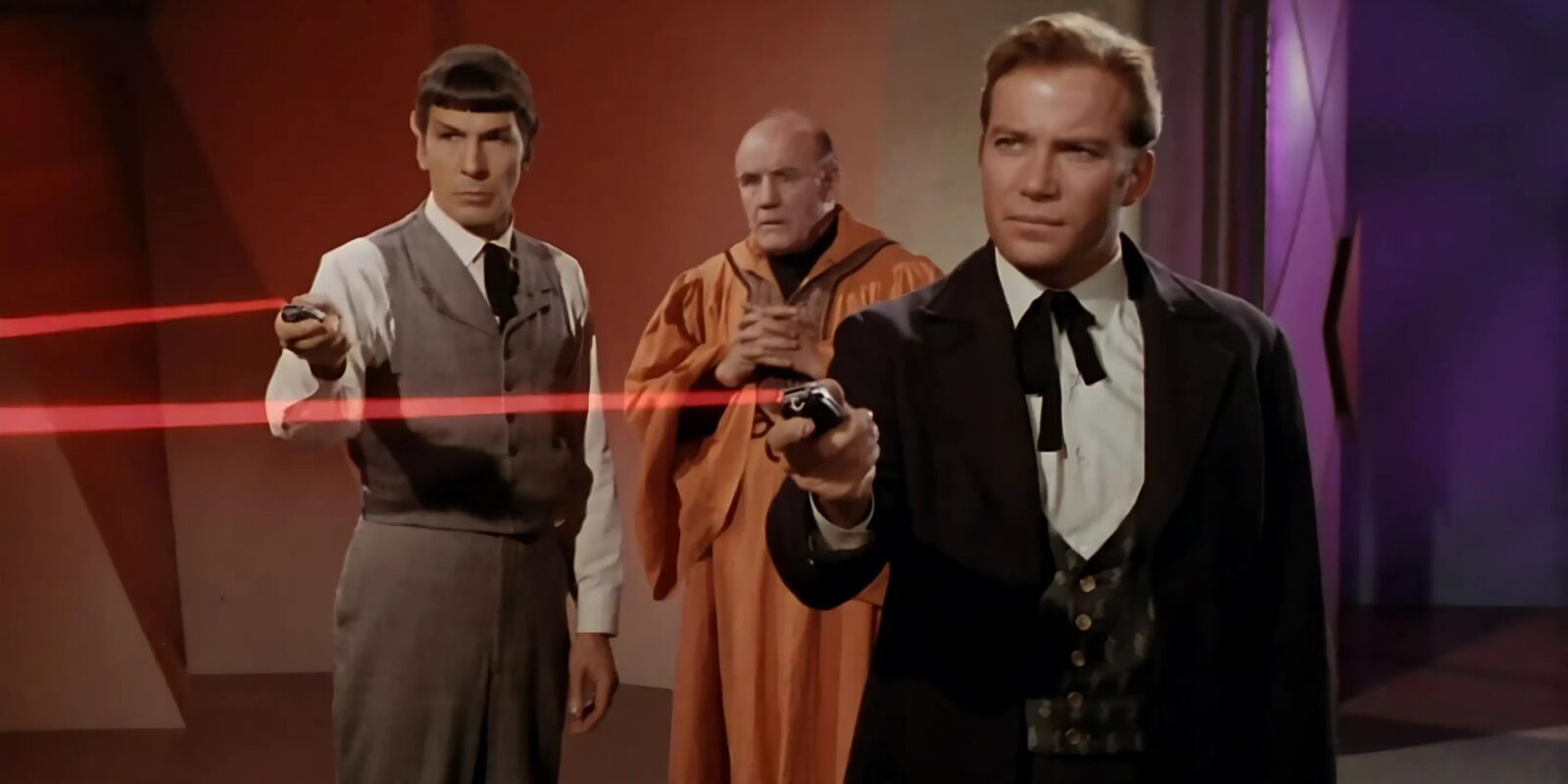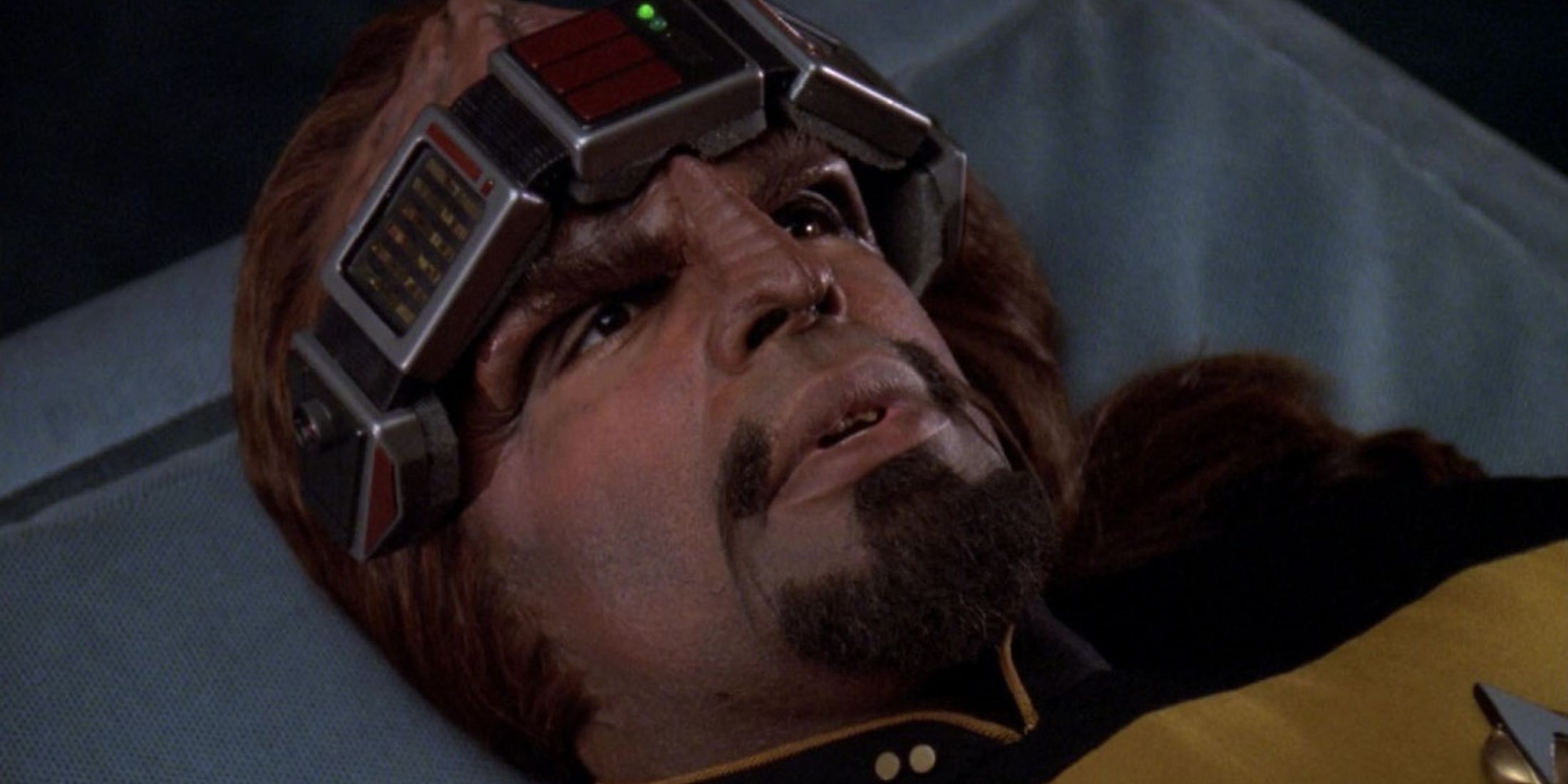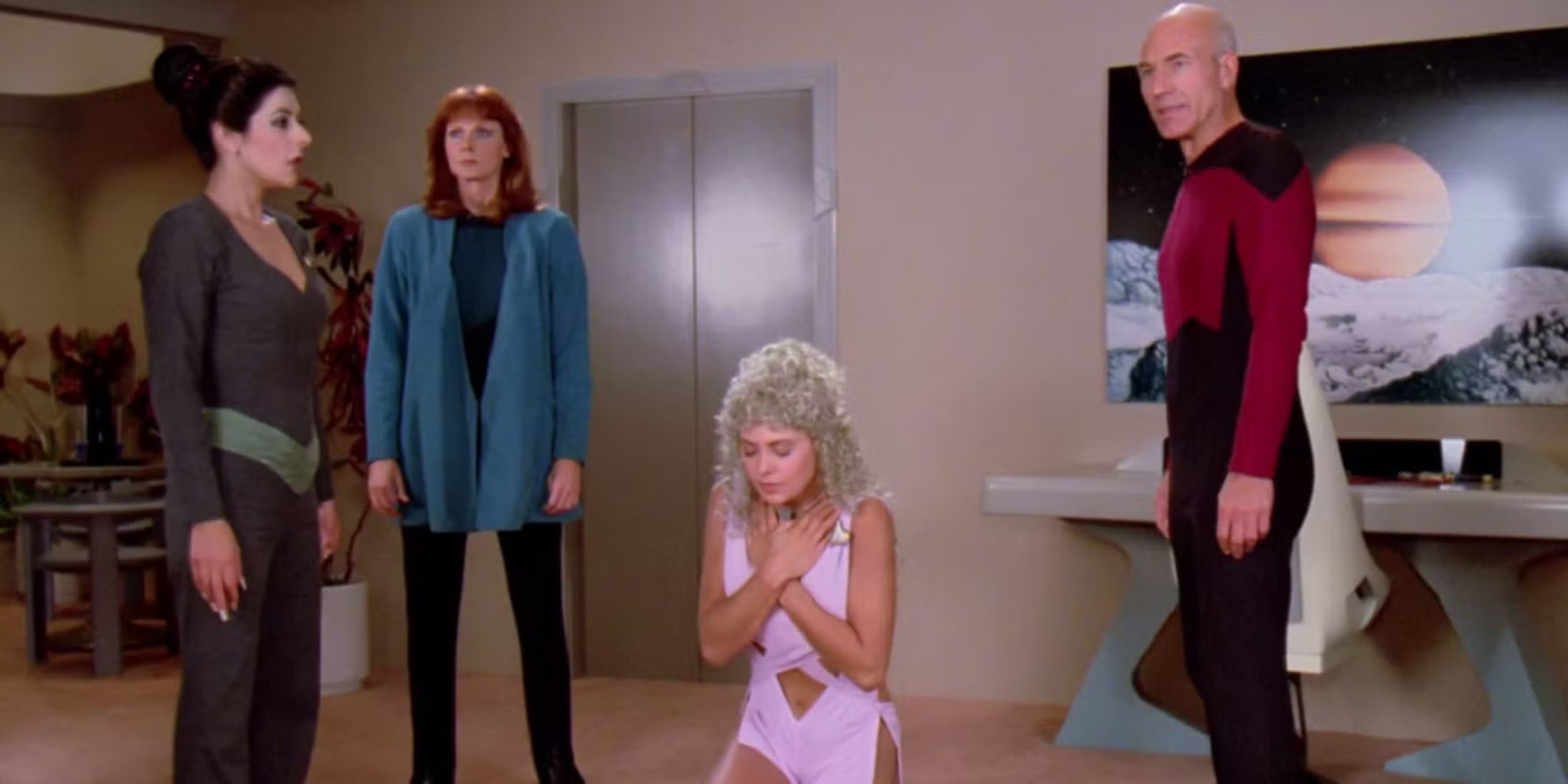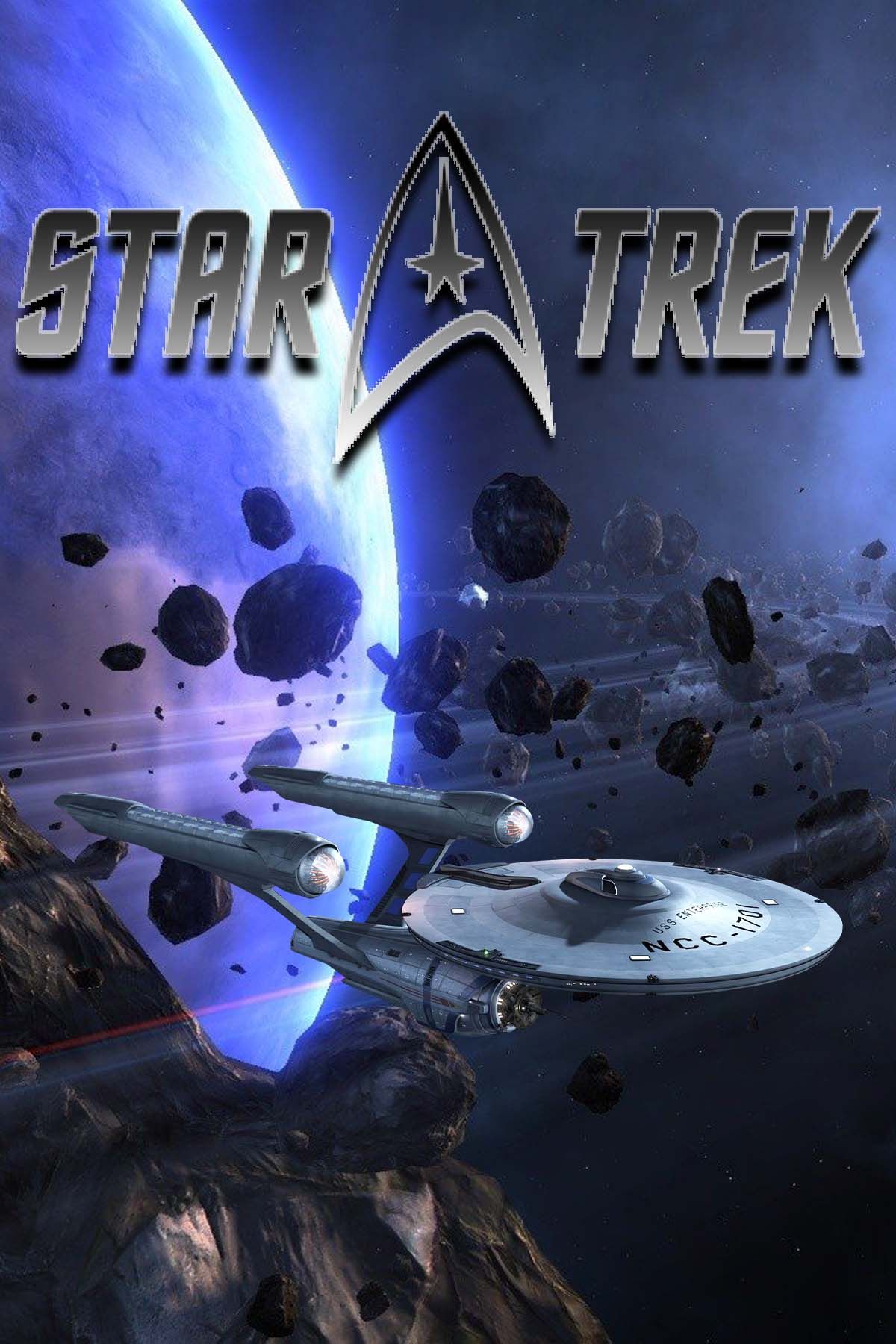Summary
- Prime Directive: sacred rule in Star Trek, inconsistently enforced, often bent or broken for storytelling.
- Earth: UFO problem, multiple violations of the rule on Earth raise questions about its application.
- Fan discourse: heated debates due to inconsistent application of Prime Directive, essential tool or plot device?
In the vast universe of Star Trek, time travel gets a lot of attention for its paradoxes and brain-twisting logic. But there’s an even bigger inconsistency hiding in plain sight: the Prime Directive. This supposedly ironclad rule is meant to prevent Starfleet from interfering with developing civilizations — but time and time again, we’ve seen it ignored, bent, or outright broken whenever it suits the story.
Despite being one of the most well-known rules in Star Trek, the Prime Directive has functioned more as a flexible plot device than a steadfast law. The policy has been at the heart of some of the franchise’s wildest ethical dilemmas, but it’s also been inconsistently enforced across the many series, films, episodes, and captains. Sometimes, it’s a sacred law that can’t be questioned. Other times, it’s tossed aside without a second thought. To be fair, it’s likely difficult to keep the rules of the universe consistent 100% of the time across decades. However, it can also be an opportunity to dive into Star Trek’s past in order to uncover the unavoidable contradictions that arise when rigid principles meet the messiness of interstellar adventure.
What is the Prime Directive?
The Prime Directive, also known as Starfleet General Order 1, is a core principle in the Star Trek universe. In layman’s terms, it forbids Starfleet and its personnel from interfering with the development of alien civilizations, especially pre-warp species and societies that haven’t yet achieved interstellar travel. The idea is to let young civilizations grow naturally without outside influence.
Here are a few examples of when the no-interference policy was actually adhered to or enforced:
- “Prototype” (Voyager): Captain Kathryn Janeway (Kate Mulgrew) refuses to help a race of artificial lifeforms build new power sources, citing the Prime Directive. Unlike Kirk or Picard, Janeway tends to stick to the rule for the most part.
- “Dear Doctor” (Enterprise): Dr. Phlox (John Billingsley) and Captain Jonathan Archer (Scott Bakula) refuse to cure a species suffering from a genetic illness, claiming that interfering would violate the future principles of the Prime Directive. The decision sparks huge ethical debates, but they ultimately adhere to the directive’s order.
- “Homeward” (The Next Generation): Worf’s (Michael Dorn) foster brother secretly saves a village from a dying planet, breaking the Prime Directive. Instead of just rolling with it, Picard insists that saving them was wrong — despite doing similar things in past episodes.
When the Prime Directive Is Tossed Aside
It’s a noble idea, but in practice, Starfleet officers seem to interpret the Prime Directive in wildly different ways. Despite its supposed rigidity, which the franchise insists upon numerous times, the application of the policy has been inconsistent. While it makes sense to have the in-universe rule broken occasionally for dramatic effect, the sheer number of times it has been broken undermines the severity of the rule itself.
Here are a few examples of the many times characters have ignored the policy:
- “The Return of the Archons” (The Original Series): Captain James T. Kirk (William Shatner) and his crew encounter a society controlled by a computer named Landru. Despite the Prime Directive, they intervene to free the population from oppression.
- “Pen Pals” (The Next Generation): Captain Jean-Luc Picard (Patrick Stewart) faces a moral dilemma when a pre-warp civilization is threatened by planetary destruction. Data’s (Brent Spiner) communication with a native child forces the crew to weigh the Prime Directive against humanitarian aid.
- “Justice” (The Next Generation): The crew visits a planet with a strict legal system where any infraction is punishable by death. When Wesley Crusher (Wil Wheaton) inadvertently breaks a law, Picard must choose between upholding the Prime Directive or saving his crew member. In the end, he chooses to interfere — yet another contradiction in Starfleet’s supposed non-interference policy.
The UFO Problem
Michael Filimowicz, in his article for Medium, points out a massive contradiction — the Prime Directive is absolute, yet we keep seeing alien civilizations interfere with Earth’s past. From the Vulcans watching humanity in Star Trek: First Contact, to various godlike beings meddling with human history, Earth itself has been subjected to plenty of Prime Directive violations.
In Star Trek: Enterprise, the Vulcans are depicted as having monitored Earth for decades before first contact. This seems to contradict the idea that advanced civilizations have been ordered to avoid interference with less developed societies at all costs. Then, even more egregiously, there’s Star Trek IV: The Voyage Home, where Kirk and crew travel back in time to 20th-century Earth. Not only do they interact with the locals, but they also leave technology behind and rescue whales, all while barely considering whether this could have lasting consequences.
The lack of explanation for why Earth keeps getting a free pass in terms of outside interference has never been fully addressed in official Star Trek canon. If other planets are supposed to develop naturally, why wasn’t humanity allowed to do the same? The answer, of course, is that Star Trek wouldn’t exist without it — but it’s still one of the biggest unresolved contradictions in the franchise.
Why Fans Keep Debating It
Because the Prime Directive is so inconsistently applied, it’s led to some of the most heated fan discourse in Star Trek history. Some see it as an essential tool for exploring ethical dilemmas, while others argue that it’s just a plot device that undermines Starfleet each time it gets thrown out, especially considering how non-negotiable it is made out to be. Filimowicz also argues that the directive is an inherently contradictory concept, stating:
A civilization governed by the Prime Directive should logically have little to no contact with outside species, yet Star Trek presents a universe filled with constant interference.
If Starfleet always stuck to the rule, we’d have a lot fewer episodes — but instead, captains keep breaking it whenever they feel like it, making it hard to take the policy seriously as a core principle of the franchise.
The Prime Directive in Action: A Comparative Table
|
Episode |
Series |
Captain |
Events |
Was the directive adopted? |
|---|---|---|---|---|
|
“The Return of the Archons” |
The Original Series |
James T. Kirk |
Destroyed a machine controlling a society. |
Nope. |
|
“Justice” |
The Next Generation |
Jean-Luc Picard |
Rescued Wesley from an unfair death sentence. |
Definitely not. |
|
“Pen Pals” |
The Next Generation |
Jean-Luc Picard |
Helped a child from a dying pre-warp civilization. |
Also nope. |
|
“Homeward” |
The Next Generation |
Jean-Luc Picard |
Got mad at someone else for saving lives. |
Weirdly, yes. |
|
“Dear Doctor” |
Enterprise |
Jonathan Archer |
Let a species die from genetic disease. |
Yes, but morally questionable. |
|
“Prototype” |
Voyager |
Kathryn Janeway |
Refused to help a robotic species evolve. |
Yes. |
What This Means for the Star Trek Franchise Going Forward
At the end of the day, Star Trek is about telling great stories, not following an imaginary rulebook to the letter. The Prime Directive may be inconsistent, but it’s also due credit for some of the most interesting episodes. It forces characters to make tough choices and has sparked some of the greatest sci-fi debates. For many fans, watching Kirk, Picard, and the rest try (and often fail) to follow it is half the fun. So, even if it’s technically the franchise’s biggest inconsistency, it’s one many Trekkies wouldn’t want to live without.
Stories need devices like the Prime Directive to create dilemmas for their characters, and Star Trek is ultimately better off for having it in place. However, going forward, perhaps the writers should consider how they handle it. If they continue to ignore or bend the rule whenever it’s convenient, they risk diluting the authority of Starfleet and the moral weight of the directive itself.















Leave a Reply